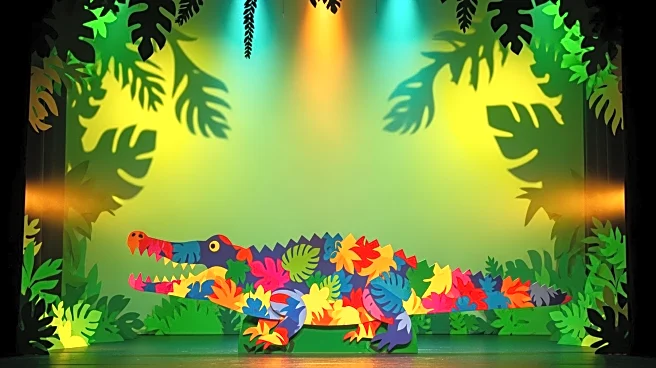What's Happening?
The iconic character of Frankenstein's monster, originating from Mary Shelley's 1818 novel, has been portrayed by various actors over the years. The first adaptation was in 1931 with Boris Karloff, who set the standard for the monster's portrayal. Since
then, actors like Lon Chaney Jr., Bela Lugosi, Glenn Strange, Peter Boyle, Christopher Lee, and Robert De Niro have taken on the role in various films. The latest adaptation features Jacob Elordi as the monster in Guillermo del Toro's 2025 film, which premiered in theaters and is now available on Netflix. Elordi's portrayal follows a tradition of actors bringing their unique interpretations to the character, with del Toro expressing his lifelong fascination with the creature.
Why It's Important?
Frankenstein's monster is a cultural icon, representing themes of creation, humanity, and monstrosity. Each actor's portrayal contributes to the ongoing dialogue about these themes, reflecting societal changes and artistic interpretations. Jacob Elordi's recent portrayal in del Toro's adaptation highlights the enduring relevance of the character and the story. This adaptation may influence future cinematic approaches to classic literature, showcasing how modern technology and storytelling can breathe new life into historical narratives. The film's release on Netflix also signifies the shift in how audiences consume media, emphasizing the importance of streaming platforms in the film industry.
What's Next?
With the release of the latest adaptation, audiences and critics will likely engage in discussions comparing Elordi's performance to previous portrayals. The film's reception could impact future adaptations of classic literature, encouraging filmmakers to explore new interpretations of established characters. Additionally, the success of the film on Netflix may influence how studios approach the distribution of major releases, potentially prioritizing streaming platforms over traditional theatrical releases.
Beyond the Headlines
The portrayal of Frankenstein's monster over the decades reflects changing societal attitudes towards science, ethics, and identity. Each adaptation offers a lens through which audiences can explore these complex themes, prompting discussions about the nature of humanity and the consequences of scientific advancement. Del Toro's adaptation, with its modern sensibilities, may provoke deeper reflections on these issues, encouraging viewers to consider the ethical implications of creation and the responsibilities of creators.















